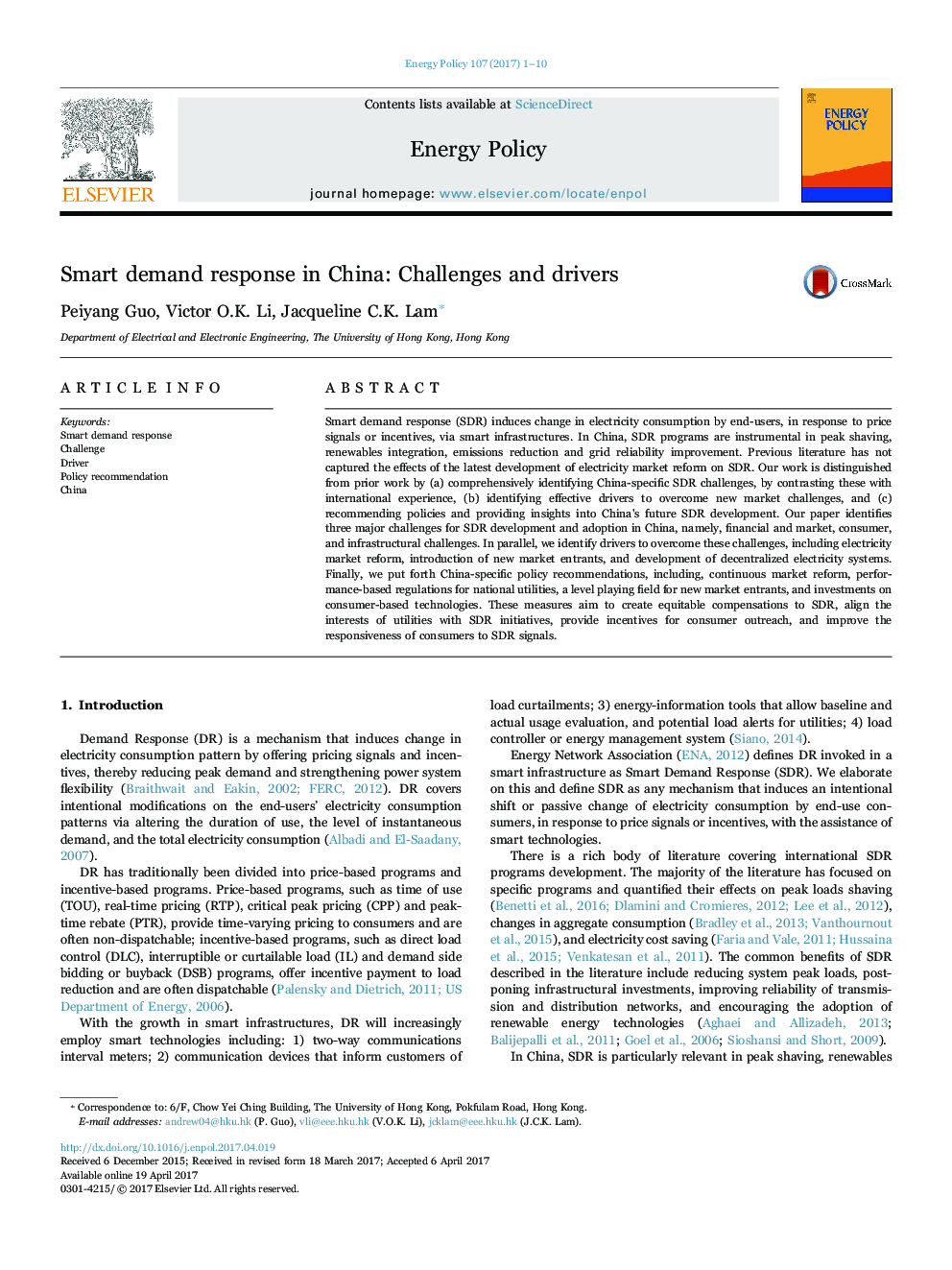| Article ID | Journal | Published Year | Pages | File Type |
|---|---|---|---|---|
| 5106020 | Energy Policy | 2017 | 10 Pages |
Abstract
Smart demand response (SDR) induces change in electricity consumption by end-users, in response to price signals or incentives, via smart infrastructures. In China, SDR programs are instrumental in peak shaving, renewables integration, emissions reduction and grid reliability improvement. Previous literature has not captured the effects of the latest development of electricity market reform on SDR. Our work is distinguished from prior work by (a) comprehensively identifying China-specific SDR challenges, by contrasting these with international experience, (b) identifying effective drivers to overcome new market challenges, and (c) recommending policies and providing insights into China's future SDR development. Our paper identifies three major challenges for SDR development and adoption in China, namely, financial and market, consumer, and infrastructural challenges. In parallel, we identify drivers to overcome these challenges, including electricity market reform, introduction of new market entrants, and development of decentralized electricity systems. Finally, we put forth China-specific policy recommendations, including, continuous market reform, performance-based regulations for national utilities, a level playing field for new market entrants, and investments on consumer-based technologies. These measures aim to create equitable compensations to SDR, align the interests of utilities with SDR initiatives, provide incentives for consumer outreach, and improve the responsiveness of consumers to SDR signals.
Related Topics
Physical Sciences and Engineering
Energy
Energy Engineering and Power Technology
Authors
Peiyang Guo, Victor O.K. Li, Jacqueline C.K. Lam,
